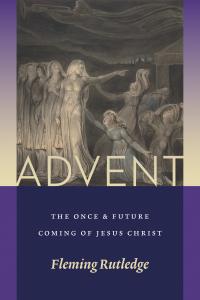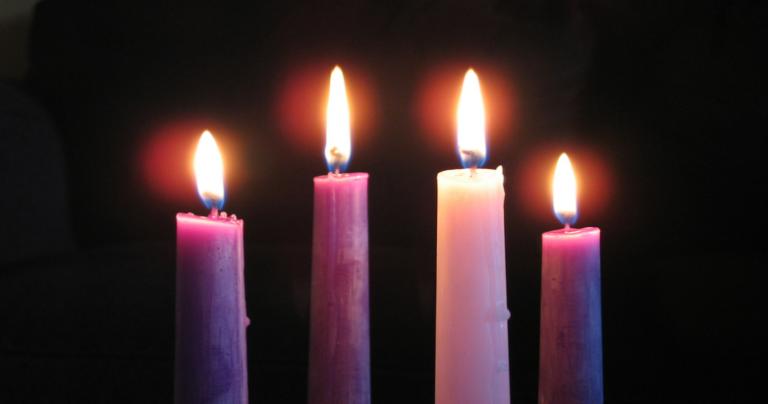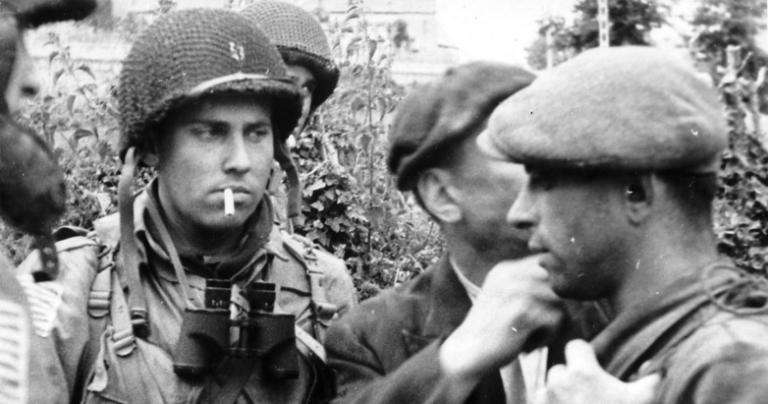According to a 2017 survey, only 39% of evangelical Christians are “comfortable” with women serving as pastors. If you read a new collection of Advent sermons by the pioneering Episcopal priest Fleming Rutledge, you’ll soon realize that that number is both far too low and far too high.
 Far too low because I’m not sure how you could encounter Rutledge’s preaching and somehow believe that she doesn’t possess the vocation, gifts, insight, and craft of a true preacher. (And if it’s her denomination as much as her gender that might get in the way for our evangelical readers… well, I’d guess that not too many Episcopalians have won the Book of the Year award from Christianity Today.) If my recent posts about the Pietist revivalists Hans Nielsen Hauge and Fredrik Franson haven’t made you rethink the idea that an affirmation of women preaching is incompatible with a commitment to biblical authority, perhaps Rutledge’s ongoing witness will.
Far too low because I’m not sure how you could encounter Rutledge’s preaching and somehow believe that she doesn’t possess the vocation, gifts, insight, and craft of a true preacher. (And if it’s her denomination as much as her gender that might get in the way for our evangelical readers… well, I’d guess that not too many Episcopalians have won the Book of the Year award from Christianity Today.) If my recent posts about the Pietist revivalists Hans Nielsen Hauge and Fredrik Franson haven’t made you rethink the idea that an affirmation of women preaching is incompatible with a commitment to biblical authority, perhaps Rutledge’s ongoing witness will.
But just the introduction to her Advent sermons has got me thinking that 39% is far too high a number in another sense. Whether it comes from a woman or man, preaching shouldn’t leave anyone anything like “comfortable.” As Oscar Romero once preached, two years before his martyrdom, “A preaching that does not discomfit sinners but lulls them in their sin leaves Zebulun and Naphtali in the shadow of death.” That’s true at all times, but especially during this rather dark time of year.
Not just a preparation for Christmas, Advent has an “eschatological, future-oriented nature” that is Rutledge’s primary concern in her new book. If the song is right that Christmas is the most wonderful time of the year, then Advent is the most apocalyptic. It is, she says, “the season of the last things.” It retells the story of a struggle between “the Enemy who has invaded and occupied the world” and God, who has accomplished his own “invasion (not too strong a word) of the old order by the new in Jesus Christ.” And it calls us to “continual vigilance… for signs of the kingdom” as we await Jesus’ Second Coming.
“In a very real sense,” she concludes, “the Christian community lives in Advent all the time… The disappointment, brokenness, suffering, and pain that characterize life in this present world is held in dynamic tension with the promise of future glory that is yet to come. In that Advent tension, the church lives its life.”
Such a tension should be uncomfortable for any Christian. But it may be especially disconcerting for a historian, since Advent “looks beyond history altogether and awaits Jesus Christ’s coming again.” As I prepare to spend the next weeks reading Rutledge’s sermons, I’m already wondering what this future-facing, “essentially eschatological” season can teach someone whose profession and calling is to face the past.

Most obviously, this most apocalyptic of Christian seasons should encourage (literally: en-courage) Christian historians to grapple with evil. Rutledge emphasizes that Advent “is not for the faint of heart. To grasp the depth of the human predicament, one has to be willing to enter into the very worst.” The examples she gives are novelists and poets: Joseph Conrad, T. S. Eliot, and especially Cormac McCarthy, whose Blood Meridian “takes us into the Advent darkness where there is no human hope whatsoever and the only possibility is the impossibility of the intervention of God.” But she might have been speaking of historians, too.
This January I’ll again take a group of Bethel students to Europe to study the First World War and its even more catastrophic sequel. After walking through the battlefields of Ypres and the Somme and encountering the legacy of the Armenian genocide in Paris, we’ll finish on the grounds of Dachau. By that point, I could never blame students for reaching a conclusion much like Rutledge’s assessment of Blood Meridian: “…every road leads to violence of the most extreme sort followed by death. There is not a single sign of hope at the end; indeed, there is a resolute refusal to offer any.”
At the very least, such historical study accomplishes something similar to Advent, which “encourages us to resist denial and face our situation as it really is.” Historians seek to understand the past “as it actually was” — however dispiriting — and its implications moving forward into the present.
But if Rutledge is correct that there is a “universal human tendency to cover up our unease and estrangement with sentimentality and denial,” I think Advent also teaches us to beware another universal human tendency: to pretend that cynical world-weariness is a kind of wisdom and fail to recognize and rejoice in whatever light does shine through the darkness. “Deliver us from fretfulness and self-pitying,” Eleanor Roosevelt used to pray before bed, “make us sure of the good we cannot see and of the hidden good in the world. Open our eyes to simple beauty all around us and our hearts to the loveliness men hide from us because we do not try to understand them.”
Open up a contemporary dictionary and you’ll be told that an apocalypse is a disaster or cataclysm. But Rutledge points out that its Greek root just means disclosure or revelation. So I can’t think of a more apocalyptic phrase than the end of Roosevelt’s famous prayer: “Save us from ourselves and show us a vision of the world made new.” Reveal to us, O God, how you are at work among us — who otherwise wouldn’t notice.
Does that have implications for Christian historians, too? If our job as an Advent people is to use our particular gifts to face the past situation as it really was, then we are called to seek out the good and beauty in history, as well as the evil and ugliness.

During this January’s trip to Europe, we’re going to spend a day at the beaches of Normandy. Rutledge uses that historical event as a metaphor in one of her sermons. Paraphrasing a New Testament scholar who likened crucifixion and resurrection to D-Day and the Second Coming to V-E Day, she continues:
When the Normandy invasion took place, everyone knew that the Allies had won, that Hitler’s game was finished. However, the Allies had to recapture Europe bit by bit, so there was still more than a year of bloodshed to come, including the intensely fought Battle of the Bulge with tremendous Allied losses. The end had come, yet it was still in the future.
Likewise, God’s kingdom is not yet.
But it is now.
To continue the Normandy metaphor… Where are we, two millennia after God’s invasion of the demonic old order? Are we still pinned down on Omaha Beach, or is the Liberation underway? In the same sermon I quoted earlier, Oscar Romero preached that “Christ appeared in Zebulun and Naphtali with the signs of liberation: shaking off oppressive yokes, bringing joy to hearts, sowing hope. And this is what God is doing now in history.”
For all the church’s failures, can we nonetheless see ground gained over the passage of time? Have there been any lasting victories over the demonic occupiers of this world? To paraphrase another great mainline preacher, has the moral arc of the universe bent — however haltingly, painfully, and incompletely — within history towards the justice (and righteousness, Rutledge would add) of God’s reign?
I don’t mean these as rhetorical questions. I struggle with them frequently, as a Christian historian who believes that hope, not just faith, should be integrated with learning — even learning about a century as dismal as the twentieth.
But this I’m sure of: we can make much of the Second Coming without having to make little of the First. Whatever it does to shape how we live in the present and into the future, Advent should also prepare us to understand this about our past: that Incarnation is the hinge of human history, with nothing left unchanged by the coming of God-with-Us.
Our challenge is to live in what the German Pietist pastor Christoph Friedrich Blumhardt called “active expectation.” Given that his father’s revival started with an exorcism and both Blumhardts wrote so much about the apocalyptic, I’m surprised that Rutledge doesn’t seem to mention them at all. Not even Christoph’s reflection on “The Meaning of Advent,” which concludes with advice that historians, among other Christians, should take to heart this season:
If you look for the truth in small matters you will not go astray in big ones. You will be able to recognize truth there and carry out the command that comes. Let us keep staunch in our eagerness to do whatever comes to us of the truth. Then there will be knocks on our door, over and over, and God’s coming will not be hidden. For devoted hearts the light will keep dawning from him who is merciful and compassionate.













